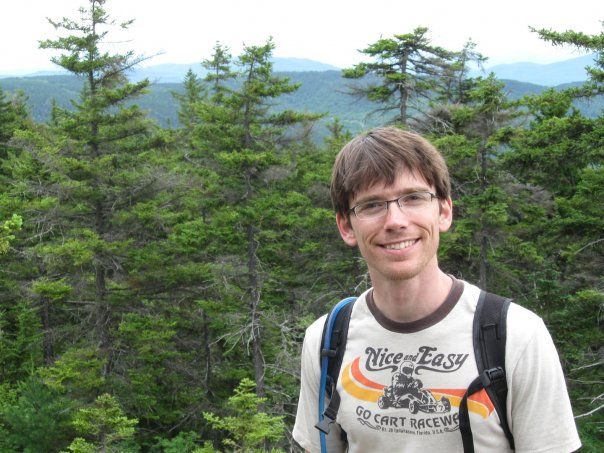When I was six years old, my parents embarked on a long and awful divorce, brought about by alcoholism and acrimony. When I was eighteen, getting hit by a car sent me into the twilight zone where years of memory were lost, my intellect plummeted to the level of a second grader, and speech and physical therapy became a way of life. Two days after I collided with that car, my grandmother was murdered. I have suffered depression that stewed me in the fog of private desolation for weeks on end. I have slogged through three surgeries to fix broken bones.
I share these stories of adversity not because I feel special. Exactly the opposite. All of this stuff has taught me one very important lesson: Behind each person I meet, behind every friend and family member, there are histories like my own. Everybody has suffered loss and trauma and fear – many folks far more than I have.
Sometimes we get a peek behind the curtain of people’s lives, a glimpse into the experience of those we encounter and know and love. When this happens, when we see the hurdles faced by others, a crucial aspect of being human becomes clear.
Nobody lives without hardship.
I worked with a young woman whose family suffered five deaths over two years. A friend once told me, voice trembling, about the night she was violently raped. I know a young teen who pines for the day she can move out of her house, away from her alcoholic mother. Due to an injury, my wife can no longer pursue her life’s passion. My stepfather has limped around since a landmine in Vietnam nearly removed his legs altogether. My best friend’s blood disorder almost killed him.
Though I can’t fully comprehend what it feels like to own these histories, I can try. What if we saw one another as those difficult events? What if I wore my brain injury as a hat? What if your irritating neighbor donned her daughter’s death as an apron? What if the moody boy walking past your house every afternoon bounced not a basketball but instead dribbled the day his mother left?
I think we’d be gentler with each other. Also, some allowances might come in handy. I have a rotten short-term and working memory since being hit by that car. Please cut me a little slack when I forget your name. Each person around you has some kind of deficit caused by misfortune. Less patience. Only one leg. A perpetual sense of loss. Estranged family. Depression. Hopelessness. Anxiety.
Of course, nobody should be defined solely by the horrible stuff they’ve faced, so we shouldn’t stop here. Instead, we can acknowledge the past and go on to appreciate its products.
In honor of my loving parents and the upstanding adults who guided me growing up, I want to be known as a man who helps a youth mentoring program thrive. My friend told me she accepted rape as part of her past but will not allow it to ruin her future; she became a psychiatrist. That young teen with the dysfunctional mother ought to be cheered for her resilience in the face of astonishing odds. With soccer no longer in the cards, my wife cultivates a new passion – rock climbing. After Vietnam, my stepfather could never go for long hikes, but he still established his own thriving small business and recently bought a bicycle that he rides every day. My friend with the blood disorder completed an Ironman-distance triathlon – 2.4-mile swim, 112-mile bike ride, 26-mile run – in 11 hours 55 minutes.
At times, life is difficult for everyone. If we’re lucky, our friends and family and mentors walk beside us along the way to provide support when we need it most. As a result, many people I know have transformed travails into triumphs. In a world short on empathy, it’s good to exercise compassion because we don’t know what kind of tribulations might be rocking somebody’s world.
Like that young woman who watched so many family members die or commit suicide: She endured more than her fair share of misfortune. Somehow, she bounced back over the years instead of regressing. Sure, she owns some heavy baggage. But she keeps driving forward despite these moments of pain I will never understand.
Maybe I’m kinder to her, knowing what I know. The shape of your abundant past is a mystery to me, but with a little imagination and humility, I can be kinder to you too.
Daniel McNeil is the director of Grand Area Mentoring.



